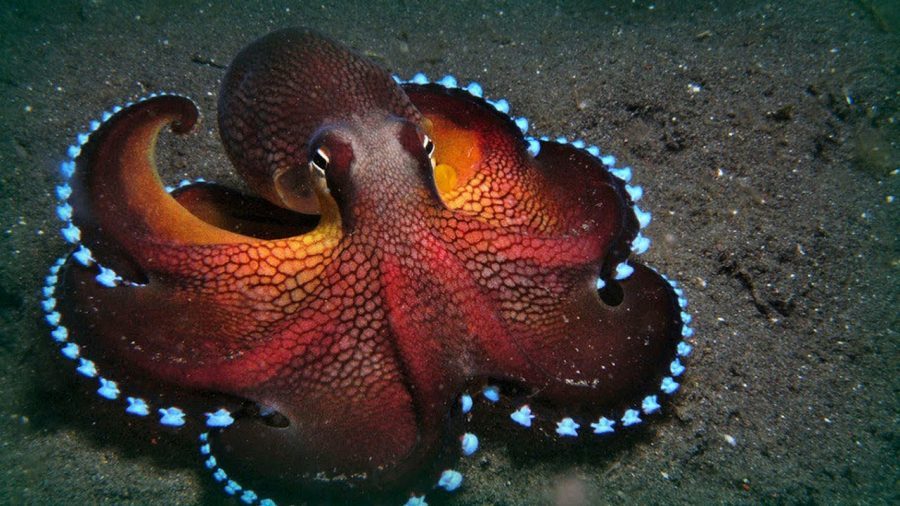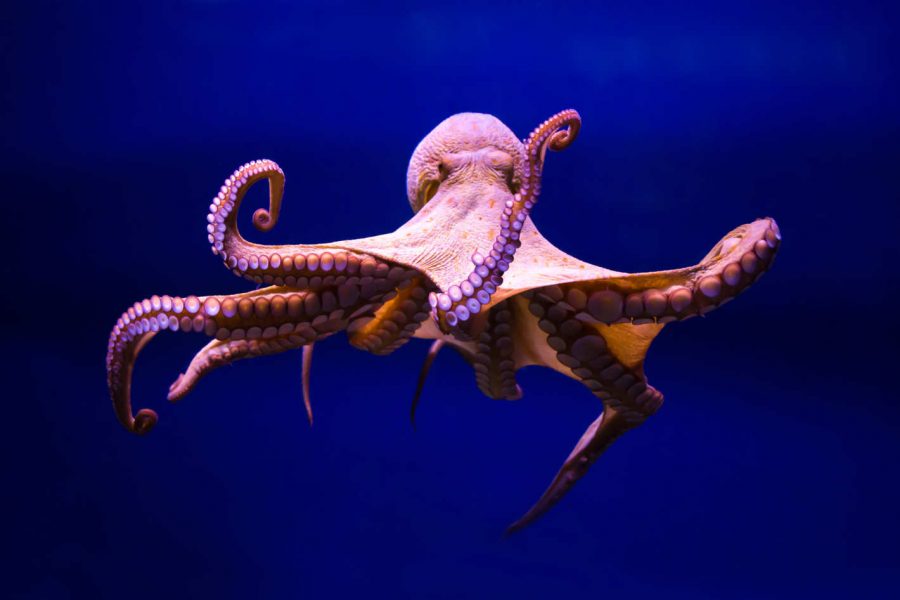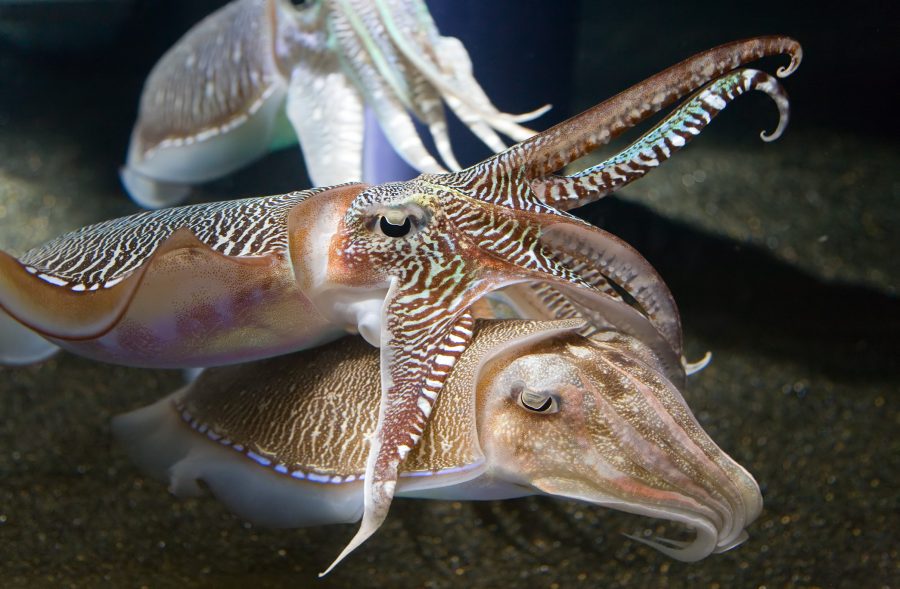A new study has proved that octopuses and other cephalopods are capable of disregarding the traditional rules concerning genetics. Along octopuses, other cephalopods like squids and cuttlefish are also capable of managing their own genetic information and adapt it according to their interests.
Octopuses are famous for being pretty intelligent creatures. They, along with other cephalopods, have a range of amazing skills that few other animals can perform. In the past, these animals have proved they can solve puzzles, learn how to use a camera and even escape dangerous situations in a Houdini-like style. Even some octopuses have the ability to change the color of its skin to look like lionfish or sea snakes and scare possible predators.

Different than many mollusks, cephalopods have a distinct quality when it comes to natural abilities. For instance, most mollusks do have the capacity of creating proteins by converting DNA into RNA, as they are in a lower level concerning neurologic development. However, cephalopods not only can create proteins from certainly made genes but actually, they can tweak their RNA for some genes (DNA) being able to produce multiple types of proteins.
How is it possible?
Cephalopods are not the only animals capable of modifying their genetic material. Fruit flies are also capable of performing this feat, with the difference that these flies can only manage up to 1 percent of their genetic code. Cephalopods, on the other hand, are capable of reconfiguring up to 60 percent of their genetic information.
In 2015, a group of researchers found that octopuses and other specimens were able to tweak their own RNA through the diversification of the cellular protein production in their nervous system and that this capacity for diversification was considerably superior to the one present in most animals.

Among these, there are two species of octopuses: the octopus vulgaris (the common octopus) and octopus bimaculoides (California two-spot octopus). Also, the publication analyzes one particular type of squid called Doryteuthis pealeii and one cuttlefish called Sepia Officinalis. All these specimens belong to the coleoid qualification of the cephalopods.
The study was a conjoint work from both the Marine Biological Laboratory in Woods Hole, Massachusetts and Tel Aviv University in Israel. Its authors are Eli Eisenberg and Noa Liscovitch-Brauer.
“Editing is enriched in the nervous system, affecting molecules pertinent for excitability and neuronal morphology. The genomic sequence flanking editing sites is highly conserved, suggesting that the process confers a selective advantage,” researchers wrote in their study, which was published in the journal Cell. “Recoding by editing effectively creates a new protein sequence, and thus it’s expanding the protein repertoire at the organism’s disposal.”
DNA rewriting, coleoids, and impressive intelligence
Coleoids are among the smartest classes of cephalopods in general. These particular specimens have demonstrated to have tens of thousands of RNA coding sites, which translates into these animals being able to rewrite those codes regularly in half of their transcribed genes that therefore would produce several types of proteins. Coleoids are the only branch of cephalopods known to perform this task.
On this issue, a group scientists wanted to understand how this activity was conducted in octopuses present in cold weather conditions in the Antarctic. They were able to detail how the animals would edit their RNA information to beat the cold and keep all the nerves usually functioning at freezing temperatures.

“We want to see which environmental variables influence the RNA editing process—things like variation in temperature…maybe something more complex like experiences,” Joshua Rosenthal, a marine biologist at Woods Hole, told Scientific American.
According to the investigation, other types of cephalopods that are not as advanced as coleoids (like nautilus) have significantly lower rates of capacity when it comes to RNA modification. Rosenthal says that this fact suggests that coleoids are different from other cephalopods considering that they are “are highly conserved and show clear signs of selection.”
In the study, there is no analysis regarding the relation between the fact these particular cephalopods have also become smarter than other specimens and the developed ability to rewrite RNA. However, it proves that this characteristic has contributed to the intelligence of certain cephalopods, authors say.
Even when this RNA-rewriting process is amazing, it comes with a cost for those specimens performing the feat. Experts explain that after the genetic codes have been tweaked, those editing sites are no longer capable of sustaining DNA variations.
These DNA modifications involve natural mutations that are needed for the evolution process. Most animals do not prioritize DNA modifications, but cephalopods do, and this translates into those species having considerably lower mutation rates and a different development process that could be negative for them.
Source: University of Chicago
